41 psychiatrists and psychologists label behavior as disordered when it is *
Classifying Psychological Disorders - CliffsNotes Several of the most prevalent of the DSM‐IV's 16 categories of disorders follow. Anxiety disorders. Anxiety is a diffuse, extremely unpleasant feeling of vulnerability, apprehension, and fear. Symptoms of anxiety disorders include motor tension (trembling, jumpiness, inability to relax), hyperactivity (racing heart, dizziness, perspiration ... Solved 18. Psychiatrists and psychologists label behavior as | Chegg.com Question: 18. Psychiatrists and psychologists label behavior as disordered when it is A) aggressive, persistent, and intentional. B) selfish, habitual, and avoidable. C) deviant, distressful, and dysfunctional. D) biologically influenced, unconsciously motivated, and difficult to change. 19.
Vaccination Behavior Among Children With ... - psychiatrist.com ABSTRACT Objective: Despite scientific evidence to the contrary, parental concerns with respect to the association between vaccination and development of autism spectrum disorder persist. The objective of this study was to assess the vaccination uptake and its associated factors in siblings of children with developmental delay. Methods: This cross-sectional study was conducted from December ...

Psychiatrists and psychologists label behavior as disordered when it is *
study guide 6 - Psychology 300 Quiz 6 Study Guide Page 1 1 ... A fundamental problem with the diagnostic labeling of psychologically disordered behaviors is that the labels often: create preconceptions that guide our perceptions and our interpretations. We view that person differently. P50310. Solved Most psychiatrists and psychologists label behavior | Chegg.com Most psychiatrists and psychologists label behavior as psychologically disordered when it is: a. deviant, distressful, and dysfunctional. b. aggressive, persistent, and delusional. c. biologically influenced, unconsciously motivated, and difficult to change. d. selfish, irritating, and avoidable. Expert Answer PDF Psychological Disorders - Purdue Defining Psychological Disorders Mental health workers view psychological disorders as persistently harmful thoughts, feelings, and actions. When behavior is deviant, distressful, and dysfunctional psychiatrists and psychologists label it as disordered (Comer, 2004).
Psychiatrists and psychologists label behavior as disordered when it is *. 13.1 Psychological Disorder: What Makes a Behaviour Abnormal? A psychological disorder is an ongoing dysfunctional pattern of thought, emotion, and behaviour that causes significant distress, and that is considered deviant in that person's culture or society (Butcher, Mineka, & Hooley, 2007). Psychological disorders have much in common with other medical disorders. Psychiatric Conditions Affecting Physicians With Disruptive Behavior Specifically, it revealed high comorbidity of psychiatric disorders and disruptive behavior, with 96.2% of the participants in this study obtaining an Axis I and/or Axis II diagnosis, based on a comprehensive assessment by a qualified psychiatrist or psychologist. finia exam - 1. Psychiatrists and psychologists label behavior as ... Psychiatrists and psychologists label behavior as disordered when it is A) aggressive, persistent, and intentional. B) selfish, habitual, and avoidable. C) deviant, distressful, and dysfunctional. D) biologically influenced, unconsciously motivated, and difficult to change. C ) deviant , distressful , and dysfunctional . The Differences Between Psychology and Psychiatry Both psychologists and psychiatrists can provide psychotherapy. However, most psychiatrists treat patients primarily by prescribing medication, while psychologists mainly rely on providing talk and/or behavioral therapy. Some states now grant psychologists prescription privileges once they complete the required education and training.
12.1 Psychological Disorder: What Makes a Behavior "Abnormal"? A psychological disorder is an ongoing dysfunctional pattern of thought, emotion, and behavior that causes significant distress, and that is considered deviant in that person's culture or society (Butcher, Mineka, & Hooley, 2007). Psychological disorders have much in common with other medical disorders. Psychological Diagnosis: Dangerous, Desirable, or Both? Similarly, psychological character diagnostic labels like narcissistic convey distinctly pejorative connotations. To most people, narcissistic is a fancy word for selfish. Chapter 14 Flashcards | Quizlet Psychiatrists and psychologists label behavior as disordered when it is A. aggressive, persistent, and intentional. B. selfish, habitual, and avoidable. C. deviant, distressful, and dysfunctional. D. biologically influenced, unconsciously motivated, and difficult to change. C Psychology Acronym Glossary | Psychology.org During your academic studies and throughout your career in psychology, you will frequently use shorthand terms to communicate with your colleagues and clients. Our glossary of need-to-know psychology acronyms is organized into degrees, mental illnesses, therapies, job titles, and professional organizations.
Abnormal Behavior: Examples & Criteria - Study.com There are many different kinds of treatment available for those who exhibit abnormal behavior as a result of a psychological disorder. Many psychiatrists favor an approach based in medication ... What Is Histrionic Personality Disorder, Amber Heard's ... - Insider According to a forensic psychologist hired by Johnny Depp's legal team, his ex — actress Amber Heard — has histrionic and borderline personality disorders. Heard's psychologist has said the only condition Heard suffers from is post-traumatic-stress disorder, due to Depp's alleged abuse.. The former couple is in the midst of a weeks-long defamation trial that's further exposed their toxic ... Psychiatrists and psychologists label behavior as disordered when it is ... Psychiatrists and psychologists label behavior as disordered when it is A) aggressive, persistent, and intentional. B) selfish, habitual, and avoidable. C) deviant, distressful, and dysfunctional. ... explain the causes of the various psychological disorders. Answer 5.0 /5 2 cjhcool77 The answer is C. deviant, distressful, and dysfunctional. Psychological Disorders: Quick Review | SparkNotes Psychologists use objective and projective tests to assess psychological disorders. Classification. Classification allows psychologists to describe disorders, predict outcomes, consider treatments, and study etiology. Insanity is a legal term, not a diagnostic label. Psychologists and psychiatrists use the DSM to diagnose psychological disorders.
Psychiatrists and psychologists label behavior as disordered when it is ... Psychiatrists and psychologists label behavior as disordered when it is: a. aggressive, persistent, intentional, and has duration. b. selfish, habitual, harmful, and avoidable. c. deviant, dangerous, distressful, dysfunctional, and has duration. d. biologically influenced, unconsciously motivated, and difficult to change. Answers
12.1 What are Psychological Disorders? - Introductory Psychology A psychological disorder is, broadly, a condition characterized by distressing, impairing, and/or atypical thoughts, feelings, and behaviors. Psychopathology is the study of psychological disorders, including their symptoms, etiology (i.e., their causes), and treatment.
Chapter 12 part 1 Flashcards - Quizlet Psychiatrists and psychologists label behavior as disordered when it is a. aggressive, persistent, and intentional. b. selfish, habitual, and avoidable. c. maladaptive, distressful, and dysfunctional. d. biologically influenced, unconsciously motivated, and difficult to change. e. instinctual, obsessive, and harmful. Click card to see definition 👆
Psychological Disorders: Types, Symptoms, Examples, and More The symptoms of bipolar disorder can include depressive episodes and mania. Mania may involve manic or hypomanic episodes. For example: Manic episodes: These last for at least 1 week. A person may be extremely high spirited or irritable for most of the day, possess more energy than usual, and notice a decreased need for sleep, increased activity, and increased risky behavior.
Psychological Labels: Read Carefully Before Applying When used correctly, labels are a great way to convey a lot of meaning in just a word or two. When misused, they can become weapons for dismissing, denigrating and dominating others. Here are some ways to become more conscious about the labels we use and why we use them.
1. Psychiatrists and psychologists label behavior as disordered when it ... answered 1. Psychiatrists and psychologists label behavior as disordered when it is: A) aggressive, persistent, and intentional. B) selfish, habitual, and avoidable. C) deviant, distressful, and dysfunctional. D) biologically influenced, unconsciously motivated, and difficult to change. E) instinctual, obsessive, and harmful. 1 See answer
Psychiatrists and psychologists label behavior as disordered when it is ... Psychiatrists and psychologists label behavior as disordered when it is - Q/A (Question and Answer) 🎓 Get access to high-quality and unique 50 000 college essay examples and more than 100 000 flashcards and test answers from around the world!
Psychiatric Diagnostic Labels: What Do They Mean? - Psychology Today The DSM is a categorization of diagnostic labels, each defined by a menu of mostly observable behavioral traits, with the diagnosis made by endorsing a certain number of them, e.g. 4 out of 7. The...
What Are Psychological Disorders? - Psychology A psychological disorder is a condition characterized by abnormal thoughts, feelings, and behaviors. Psychopathology is the study of psychological disorders, including their symptoms, etiology (i.e., their causes), and treatment. The term psychopathology can also refer to the manifestation of a psychological disorder.
PDF Psychological Disorders - Purdue Defining Psychological Disorders Mental health workers view psychological disorders as persistently harmful thoughts, feelings, and actions. When behavior is deviant, distressful, and dysfunctional psychiatrists and psychologists label it as disordered (Comer, 2004).
Solved Most psychiatrists and psychologists label behavior | Chegg.com Most psychiatrists and psychologists label behavior as psychologically disordered when it is: a. deviant, distressful, and dysfunctional. b. aggressive, persistent, and delusional. c. biologically influenced, unconsciously motivated, and difficult to change. d. selfish, irritating, and avoidable. Expert Answer
study guide 6 - Psychology 300 Quiz 6 Study Guide Page 1 1 ... A fundamental problem with the diagnostic labeling of psychologically disordered behaviors is that the labels often: create preconceptions that guide our perceptions and our interpretations. We view that person differently. P50310.


![Psychologist vs Psychiatrist [Infographic]](https://i.pinimg.com/originals/35/3c/47/353c47f03f5f9d5452f51a19d6f0f049.jpg)
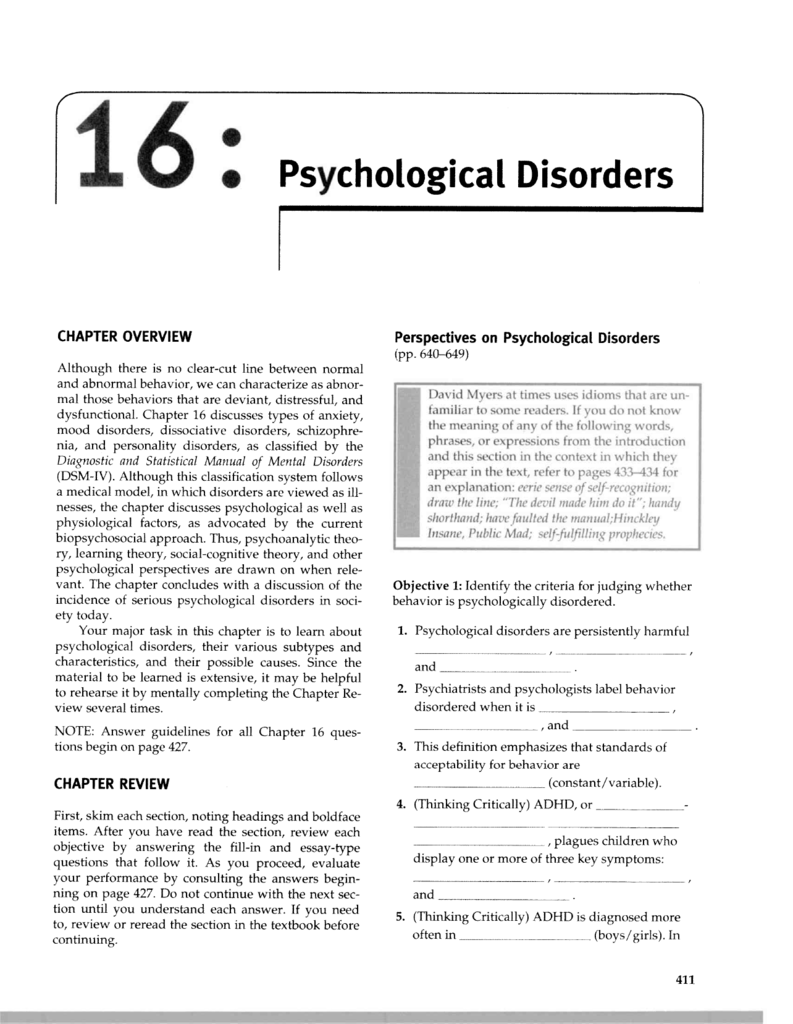

/cdn.vox-cdn.com/uploads/chorus_asset/file/8571961/fact.jpg)
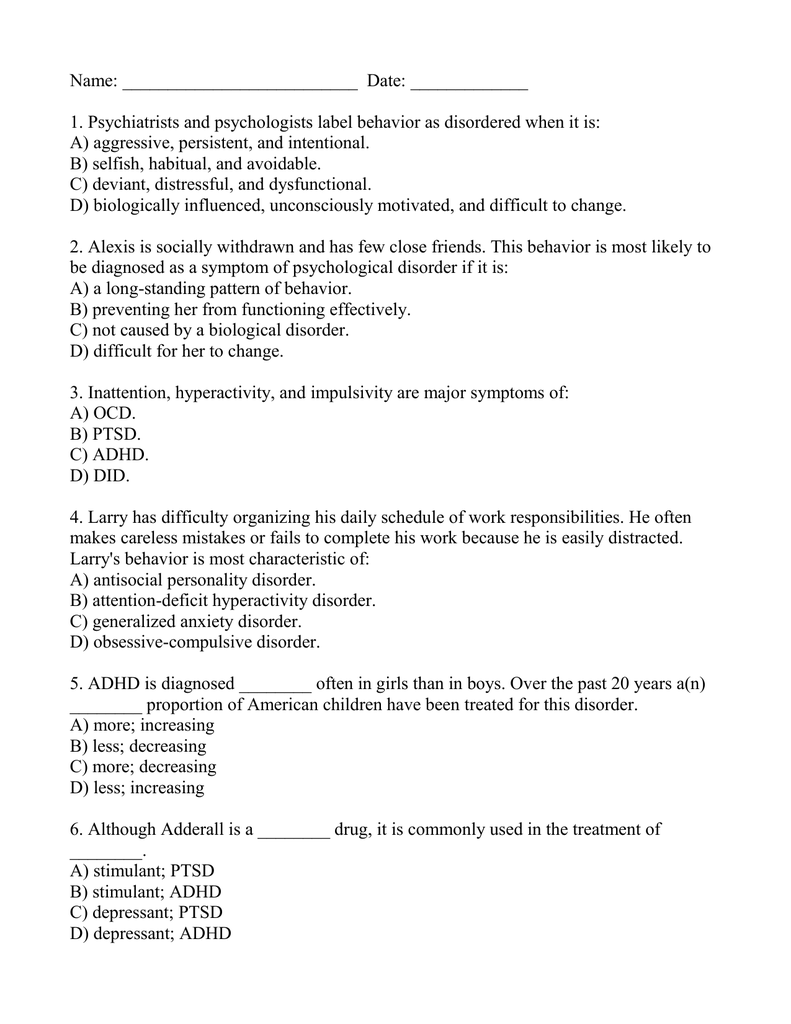










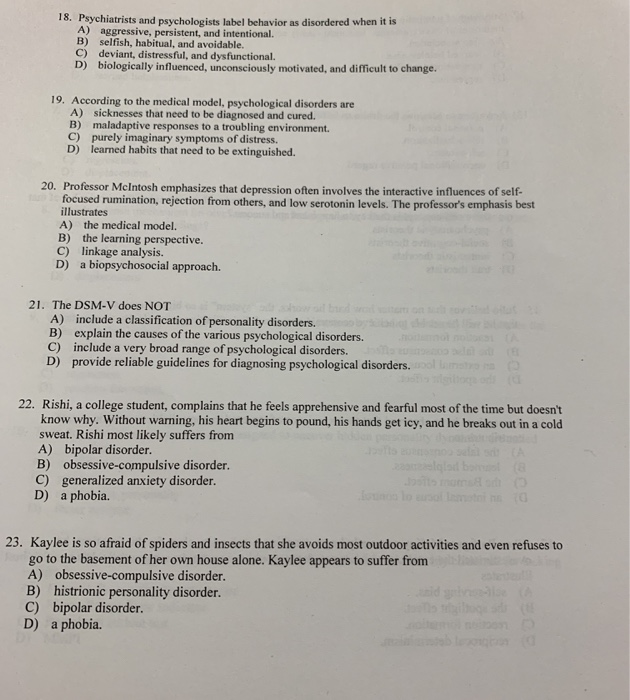



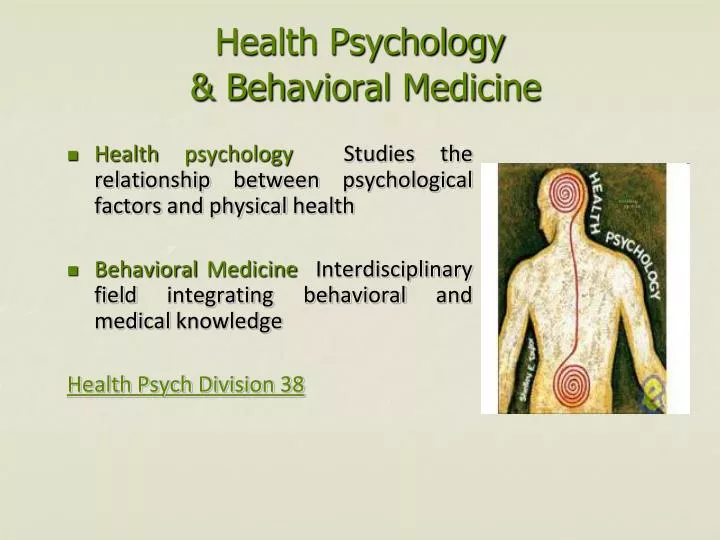







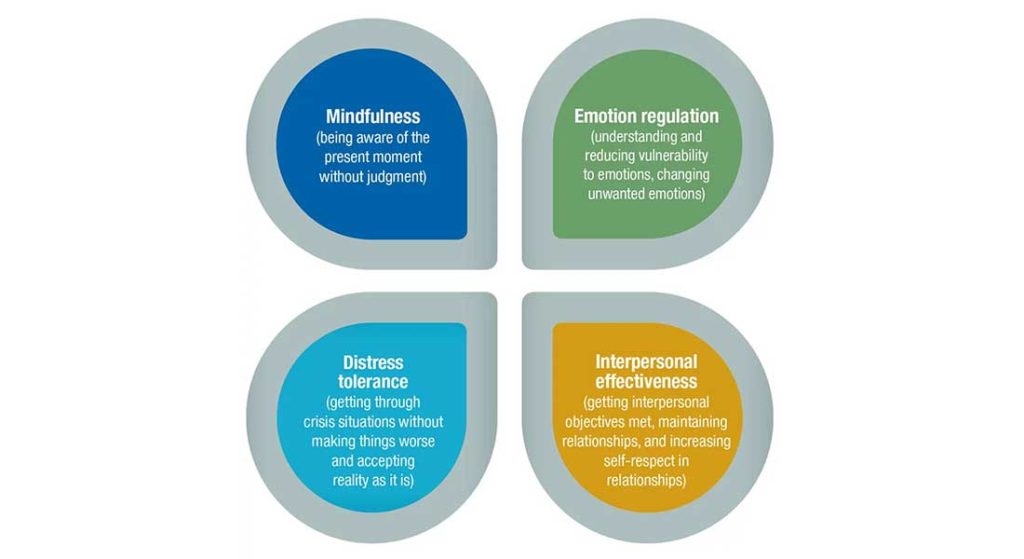

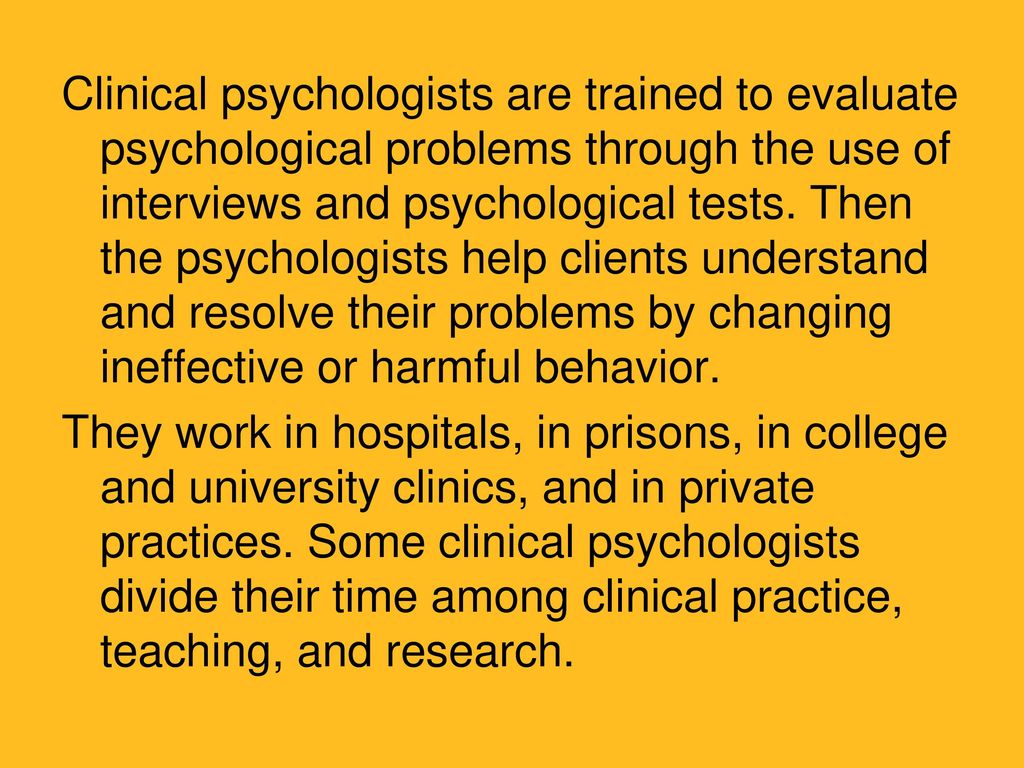

Post a Comment for "41 psychiatrists and psychologists label behavior as disordered when it is *"